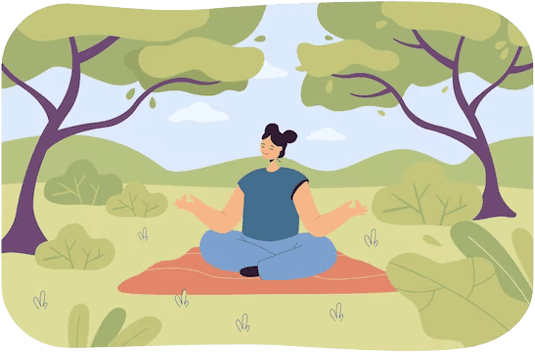
We all experience stress, anxiety, and worry at some point in our lives. It can be overwhelming, and we often feel like we have no control over our circumstances. But what if there was a way to free ourselves from unnecessary worry and anxiety? What if we could learn to focus our attention on the things we can control, and let go of the things we cannot control? This is the essence of the Dichotomy of Control, a concept from ancient Greek philosophy that teaches us a valuable lesson for living a more fulfilling life.
The Dichotomy of Control is a simple yet powerful idea that has been passed down through the ages. It is the idea that we should focus our attention on the things we can control, and let go of the things we cannot control. The concept comes from the Stoics, a school of philosophy that flourished in ancient Greece and Rome, and it has been embraced by thinkers and leaders throughout history, from Epictetus to Marcus Aurelius to Nelson Mandela.
At its core, the Dichotomy of Control is about understanding that there are some things in life that we simply cannot change. We cannot control the weather, the traffic, or the actions of others. We cannot change the past, or predict the future. But we can control how we respond to these circumstances, and how we choose to live our lives.
The Dichotomy of Control teaches us to focus on the things that are within our control, and to let go of the things that are not. This means focusing on our own thoughts, feelings, and actions, rather than trying to control the thoughts, feelings, and actions of others. It means accepting that there will be challenges and difficulties in life, but that we have the power to choose how we respond to them.
One of the key benefits of practicing the Dichotomy of Control is increased resilience. When we focus on the things we can control, we become more adaptable and better able to manage stress and uncertainty. We learn to be more patient, more persistent, and more flexible in the face of adversity. This resilience helps us to weather the storms of life, and to emerge stronger and more resilient on the other side.
Another benefit of the Dichotomy of Control is better mental health. By focusing on the things we can control, we reduce our levels of stress and anxiety. We learn to let go of worry and rumination, and to focus on the present moment. This helps us to feel more grounded and centered, and to develop a greater sense of inner peace and well-being.
The Dichotomy of Control also helps us to live a more fulfilling life. When we focus on the things we can control, we become more proactive and more effective in our lives. We learn to set goals, to take action, and to create the life we want to live. This sense of purpose and direction helps us to feel more engaged and fulfilled in our lives, and to experience a greater sense of meaning and purpose.
So, how can we practice the Dichotomy of Control in our daily lives? Here are some tips to get started:
- Focus on your own thoughts, feelings, and actions. Do not worry about trying to control the thoughts, feelings, and actions of others.
- Accept that there will be challenges and difficulties in life. Focus on how you can respond to these challenges in a positive and constructive way.
- Learn to let go of worry and rumination. Focus on the present moment, and on the things you can control right now.
- Set goals and take action. Create a vision for your life, and take steps to make that vision a reality. Focus on the things you can control, and take action to move closer to your goals.
- Practice gratitude. Focus on the things you are grateful for in your life, and cultivate a sense of appreciation for the present moment.
- Develop a sense of inner peace and well-being. Practice mindfulness, meditation, or other relaxation techniques to help you stay centered and calm.
- Be kind to yourself. Recognize that you are only human, and that it is okay to make mistakes. Focus on progress, not perfection.
- Practice voluntary discomfort. Choose to challenge yourself in small ways that will help you build resilience and become more comfortable with discomfort.
- Learn to embrace change. Focus on the things you can control, and be open to new experiences and opportunities.
- Surround yourself with positive people. Build a network of friends and colleagues who share your values and outlook on life.
The Dichotomy of Control is a timeless lesson that can help us to live a more fulfilling life. By focusing on the things we can control, we can increase our resilience, improve our mental health, and create a sense of purpose and direction in our lives. So, the next time you find yourself feeling overwhelmed or anxious, remember the Dichotomy of Control, and focus on the things you can control. You may be surprised at how much it can help you to live a more fulfilling and satisfying life.